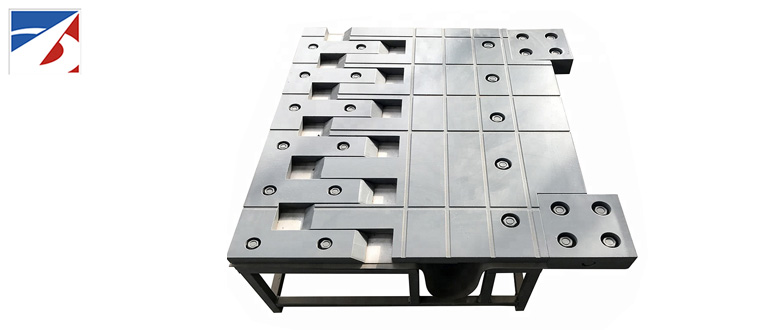Modular Expansion Joints

Strip Seal Expansion Joint
2019年3月27日
Finger Expansion Joint
2019年3月27日Modular Expansion Joints
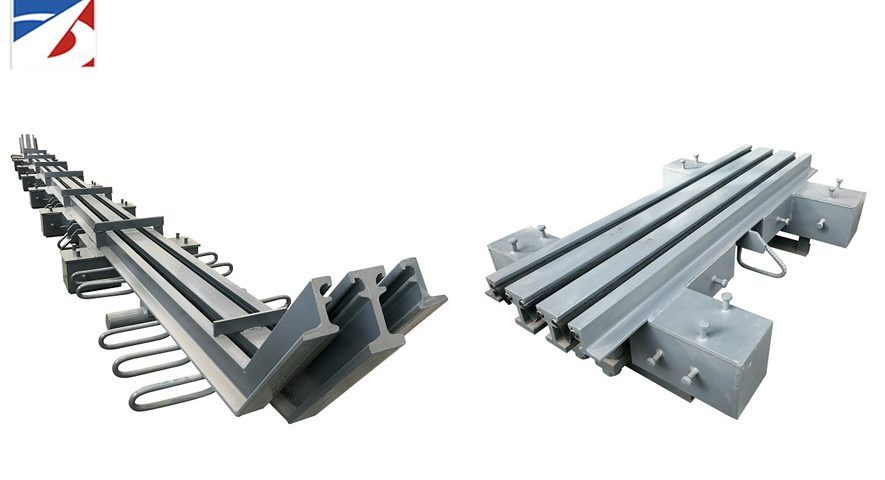
modular expansion joint
Modular Expansion Joints consist in the traffic direction of a succession of watertight elements (seal) comprising movement controlled metal beams (centre beams), supported by moveable substructures bridging the structural gap i.e. cross beams, cantilevers or pantographs. The metal beams are flush with the running surface. The assembly of watertight elements, centre beams and substructures is situated between edge beams, rigidly and in a watertight manner connected to the main structure. The top surfaces of the centre beams and edge beams are flush with the running surface. Where seals are flush with the running surface, they are not designed to carry the traffic loads.
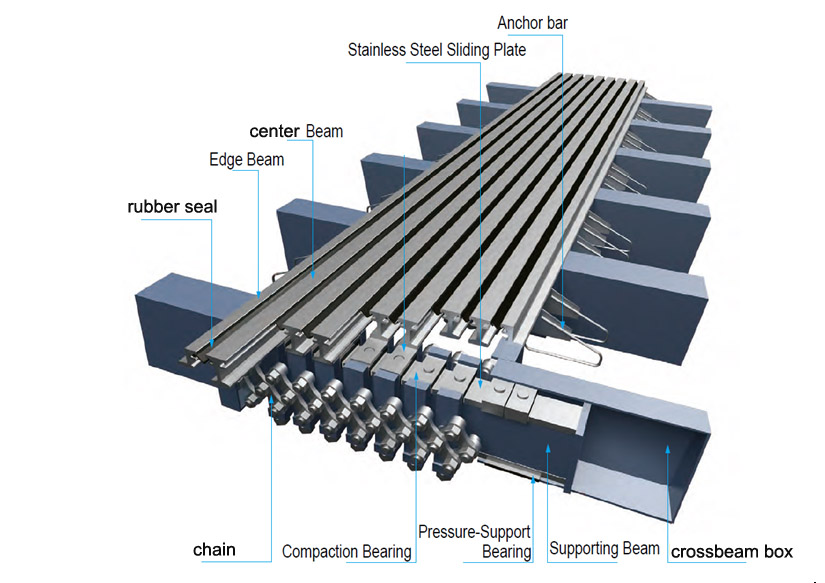
Modular Expansion Joint Displacement
The movement range of the modular expansion joint is decided by the number of seals. As per AASHTO and ETAG specifications, the max. movement per each seal is regulated to be 80 mm. The total movement of a modular expansion joint is the numbers of the cells times 80 mm. So the type of modular expansion joint can be classified into 160 type, 240 type, 320 type, 400 type, 480 type, 560 type, 640 type, 720 type, 800 type, 880 type, 960 type, 1040 type, 1120 type and 1200 type.
160 Type Modular Bridge Expansion Joint
 |
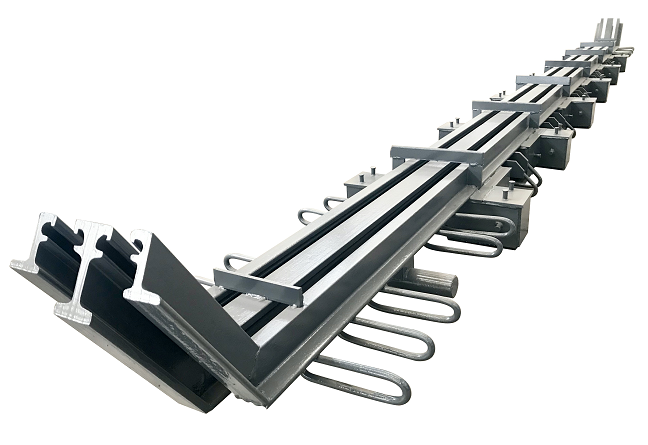 |
240 Type Modular Bridge Expansion Joint
 |
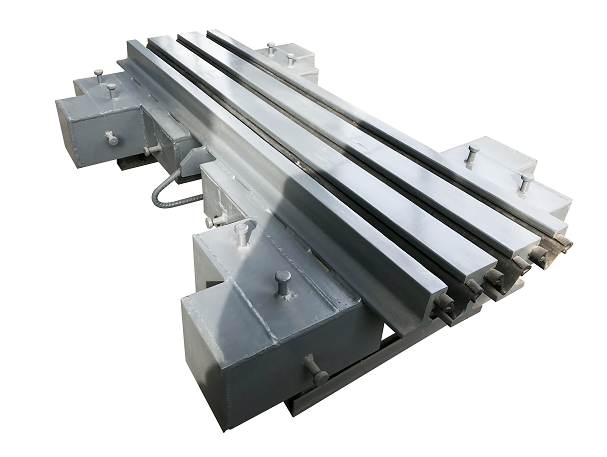 |
Modular Expansion Joint Components
In general, modular expansion joints include the following components:
- Center Beam
The centre beam carries the vertical and horizontal traffic loads with sufficient evenness and skid resistance. The traffic loads are transferred to the crossbeams. Further, it supports the seals between the centre beams and between the centre beams and the edge beams.
- Edge beam
The edge beam carries the vertical and horizontal traffic loads and transfers the loads into the main structures such as abutment and bridge. Further, it supports the seal.
- Support beam(cross beam)
The support beam transfers the loads from the centre beams to the main structures. In addition to the load bearing function, it can slide or rotate in order to allow movements of the main structures without the locking solid of the main structures and the centre beams.
- Pantograph (crossbeam)
The pantograph support acts as a crossbeam with a variable length by rotation of its parts. Further it acts as a control element for the centre beams.
- Crossbeam box (joist box)
The crossbeam box supports the crossbeams and ensures by its stiffness that the forces applied by the prestress elements are not susceptible to variation due to moving end supports surfaces.
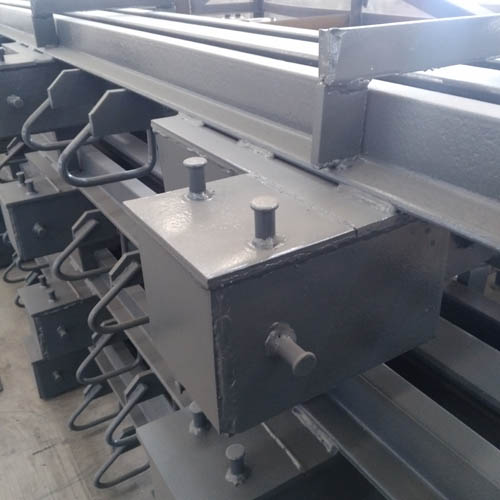 |
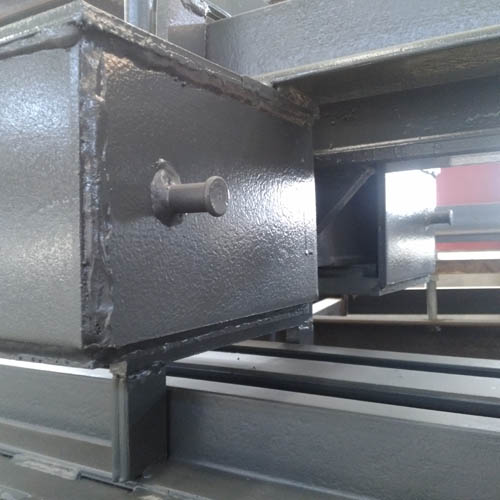 |
- Seal
A seal functions as a barrier for the surface water to ensure the watertightness, it is flexible in all directions and does not carry the traffic loads.
 |
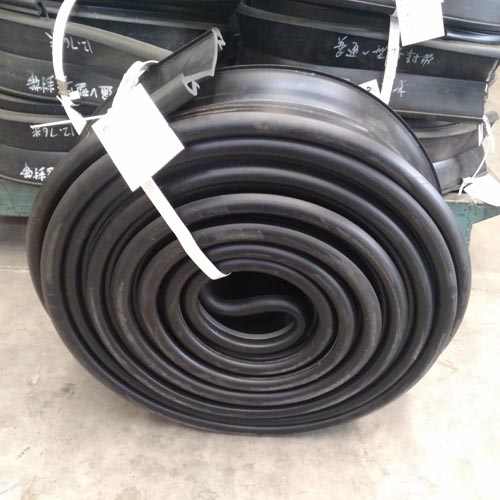 |
- Fixed and/or sliding bearing
The bearing transfers the (traffic) loads from the centre beam to the crossbeam and/or to the main structure. The bearing can be fixed or sliding, in all cases it enables rotations. Rotations can cause reaction moments from deformation or friction in curved sliding surfaces.
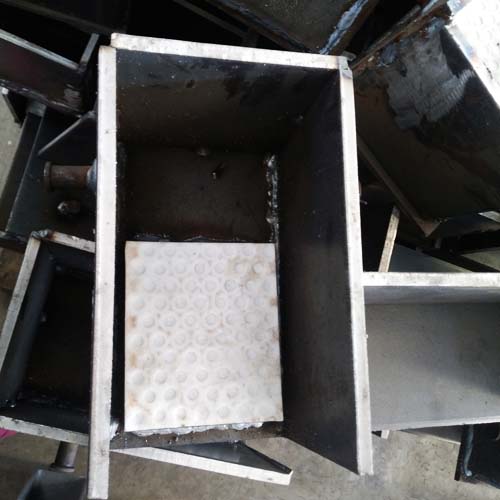 |
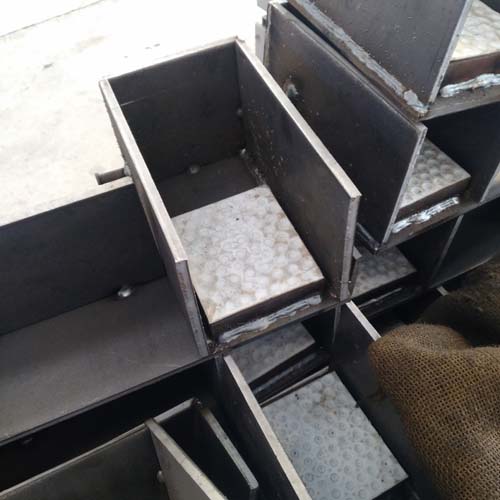 |
- Prestress element
A prestress element prevents uplift of the centre beam to crossbeam connection and/or uplift in the crossbeam to main structure connection. A prestress element can be fixed or sliding and always has to allow rotations. Rotations can cause reaction moments from deformation or friction in curved sliding surfaces.
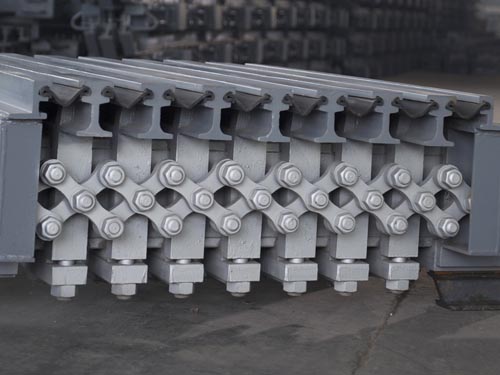 prestress element |
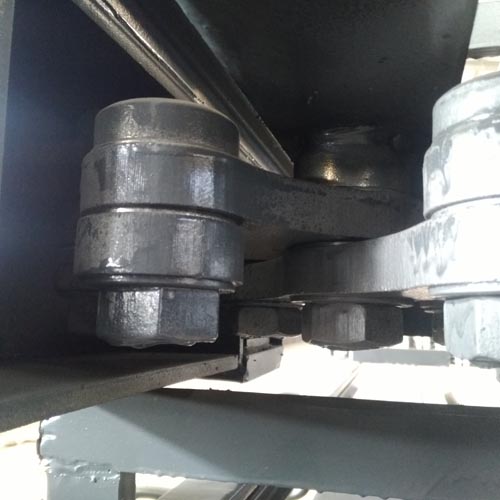 pretress element |
- Control elements
Control elements ensure that the centre beams are at approximately equal distances at the various opening positions of the modular joints.
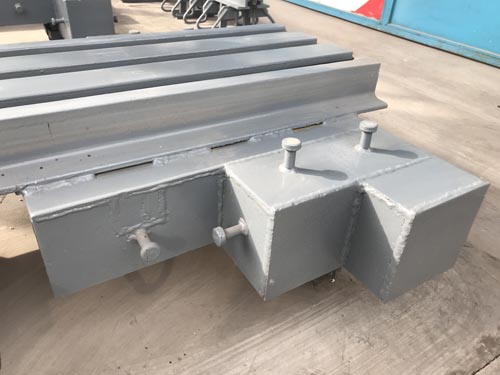 |
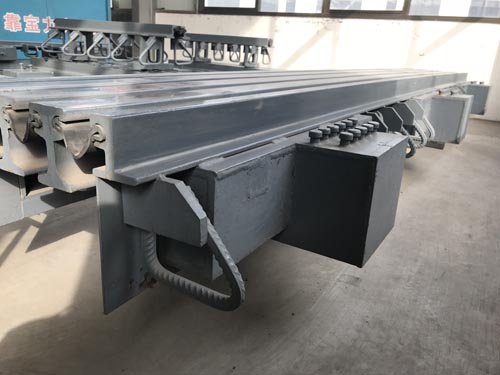 |
- Anchor
Anchors ensure the connection of the expansion joint to the main structures.
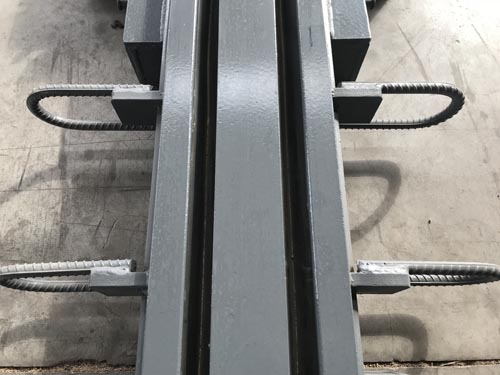 |
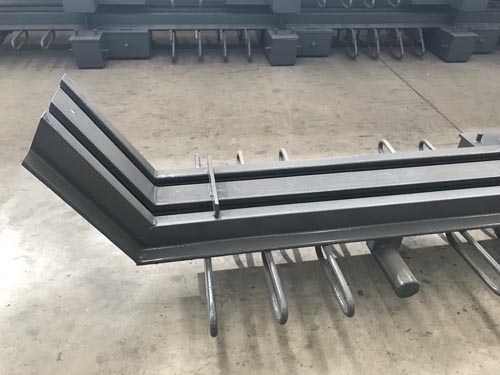 |
- Additional surface elements (e.g. noise reducing)
Surface elements reducing the noise of traffic on the joint.
Aspects of Identification
In order to fulfil the traceability requirements, each modular expansion joint of BAOLI will be clearly identified, e.g. with a label, comprising the following information:
- Manufacturer’s name and address,
- Type of product,
- Batch number,
- Date of manufacture.
Modular Expansion Joint Packing
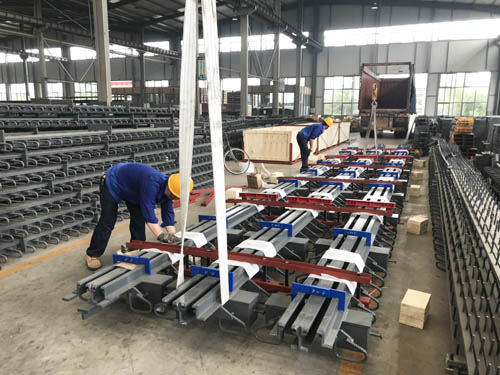 |
 |
| 160 modular expansion joint in warehouse | Modular expansion joint are fixed with steel frame |
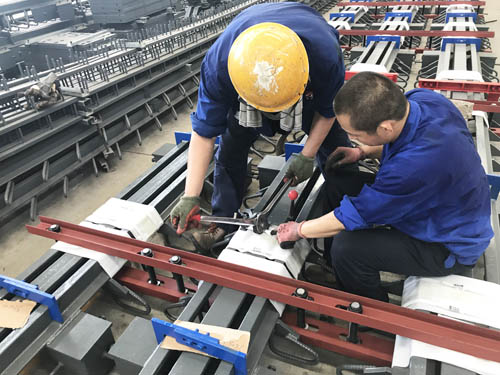 |
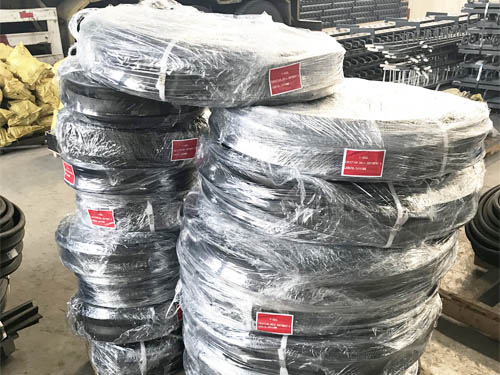 |
| Modular expansion joint are fixed with plastic strap | Rubber seal for modular expansion joint packed with plastic film |
Modular Expansion Joint Application
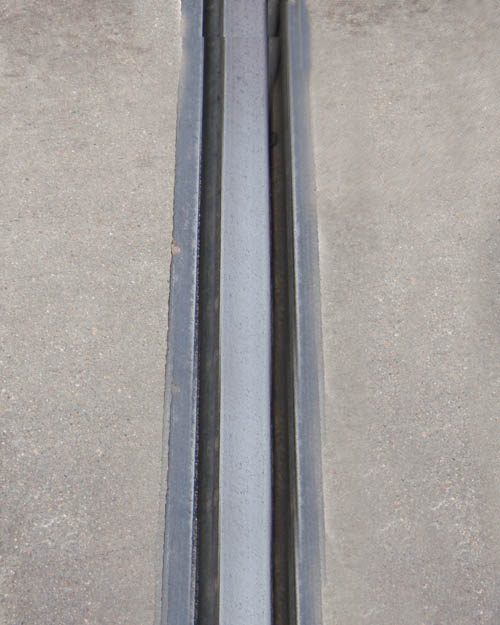 |
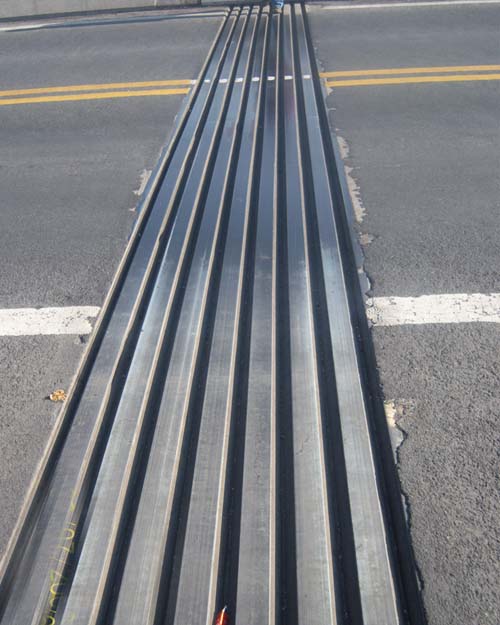 |
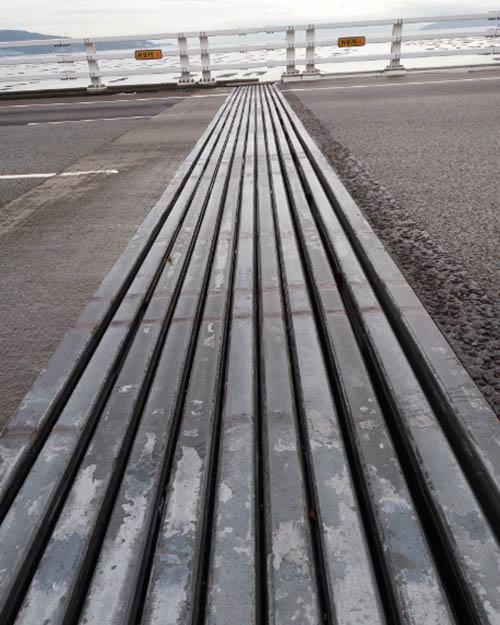 |
| 160 type modular expansion joint for bridge construction | 480 type modular expansion joint for bridge construction | 800 type modular expansion joint for bridge construction |

